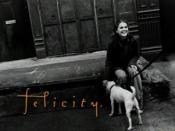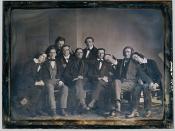The Lottery: You're Only Losing Your Life
In 1948, Shirley Jackson published a short story in The New Yorker called "The Lottery". In 1996, a modern version was adapted when a made for television movie was produced by Anthony Spinner. Both versions relay that there is strength in large numbers, even when the outcome is immoral. Mindsets and rituals in society are often the result of our complacency; it is easier to keep with tradition then to question its necessity or benefits. The time set of the movie versus the story and the time they were intended to be experienced allow for some interesting differences in the stories. In the end, both maintain the theme that blind obedience is irrational and grotesque.
The written story begins with a lovely scene; I would almost envision a small, harmonious town setting like the park in The Music Man. The story is told from a third person viewpoint and is unemotional but very knowledgeable about the town, the lottery and the people.
This lull's the reader into a false sense of security and excitement about what will take place. In the end what takes place in the movie and book is a lottery where slips of papers are drawn from a box to select one person from the village. The person selected is a scapegoat and is stoned to death in the town square by every single villager. The viewpoint in the movie version is seen from Jason. Within the first fifteen minutes we see the immorality and corruption of modern day society through his experiences. Jason's in traffic: he finds a dead body; he witnesses the death of his father in a mental hospital and comes home to being dumped by a girlfriend that is career climbing by sleeping...



The Lottery
Again another good piece. Very discriptive and informative. I enjoy reading your work.
Keep it up
1 out of 1 people found this comment useful.